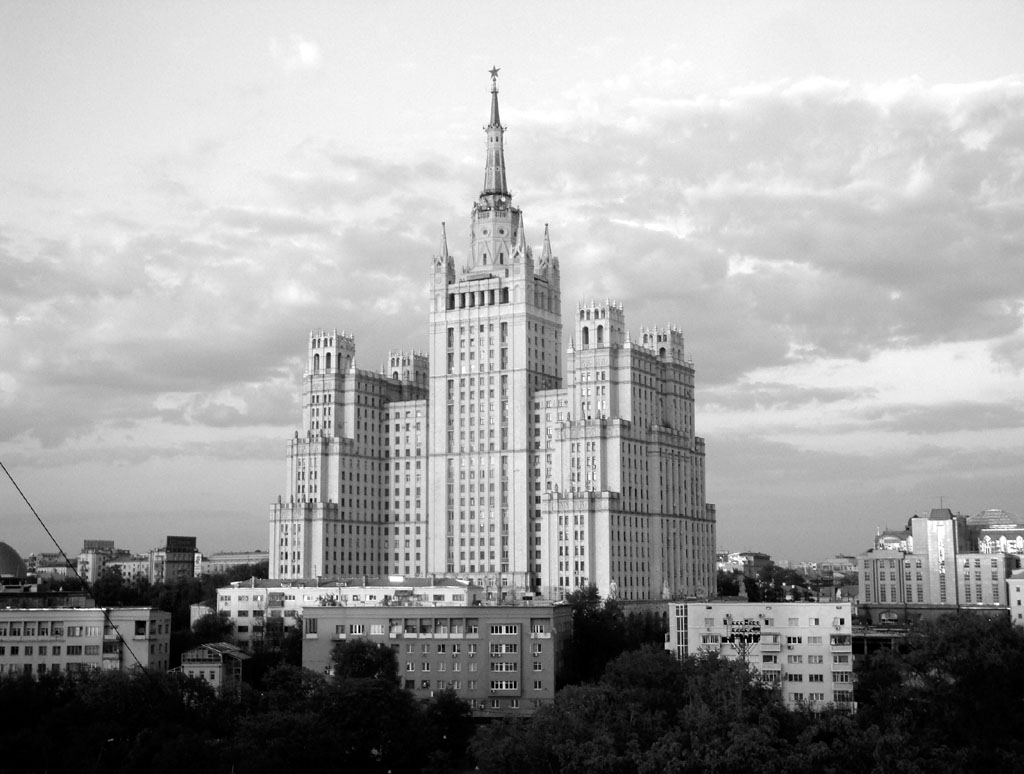03-07-13 // UNLIMITED GREATNESS – INTERVIEW WITH ANTOINE GRUMBACH

One of Moscow’s ‘Seven Sisters’
Beatriz Ramo and Bernd Upmeyer spoke on behalf of MONU with the French architect and urban designer Antoine Grumbach. Since 2008 Grumbach has been leading one of the teams of the Grand Paris project, an initiative launched by former French President Nicolas Sarkozy for a new global plan for the Paris metropolitan region. The 15 teams of architects and urban planners, appointed by the so-called Atelier International Grand Paris (AIGP) to be part of the Scientific Committee for the mission ’Grand Paris: pour une métropole durable’, were selected through a competition. Grumbach proposes for Paris a so-called “Seine Metropolis” – he recommends to develop Paris along the valley of the river Seine linking Paris, Rouen, and Le Havre.
In 2012 Antoine Grumbach and Jean-Michel Wilmotte won two of the three available prizes at the “Greater Moscow” competition. The competition intended to solicit concepts regarding the development of Greater Moscow. The winners of this competition were selected in a series of seminars that invited the final teams, with architects from Russia and countries in Europe, the Americas and Asia, to discuss specific proposals, which were intended to create an image of prestige for Greater Moscow as a place with a competitive business environment. This interview took place on July 3, 2013 in Grumbach’s office in Paris.
The Greater Moscow Competition
Bernd Upmeyer: Last year you won prizes in the Greater Moscow competition and since 2008 you have been involved in the Grand Paris project. How might both projects be compared?
Antoine Grumbach: One of the biggest differences between the Grand Paris and Greater Moscow project was the fact that Grand Paris was supported by the President of France, namely Sarkozy, who asked architects and urbanists to make proposals without any constraints. In Moscow the Mayor and his administration had decided on the extension of the city and organized the competition according to a programme. They were very strict there and made a 9-month programme and each month we met for a 3-day seminar, where 400 people took part.
Beatriz Ramo: 400 people in one seminar?
AG: Yes. In that respect, it was not a real seminar, because each team had to respond to a question and presented it to a large audience and at the beginning got marks, and the ones that had bad marks were supposed to be kicked out. Happily, it happened only at the first presentation that a Russian team had to leave the consultation.
BR: Like at Big Brother.
AG: After we complained about that and said that this is ridiculous, we understood that they did not know how to handle a great diversity of projects. Their expectation was to have something to start building immediately. Of course, there were many propositions on a theoretical basis rather than a project to be immediately realized. In the process they were decent enough to organize a final jury that had to select three prizes, one for the region, one for the city extension, and a third for the development of a project – which was very much criticized – to move all the civil servants and the entire administration of Moscow to a new development outside the city. It was a bit like La Defense. And I was wondering: why? Because they had their offices in beautiful old buildings, but they wanted to concentrate the federal administration, but finally this idea was abandoned. The financing of this project was based on the opportunity to sell the land and the buildings in the centre of Moscow…
…the complete interview was published in MONU #19 on the topic of Greater Urbanism on October 14, 2013.
Title: Unlimited Greatness
Project: Interview with Antoine Grumbach
Date: July 2013
Type: Commissioned interview
Topic: Greater Urbanism
Organizer: MONU
Status: Published
Publications: MONU #19, P.4-11
Interviewer: Beatriz Ramo, Bernd Upmeyer